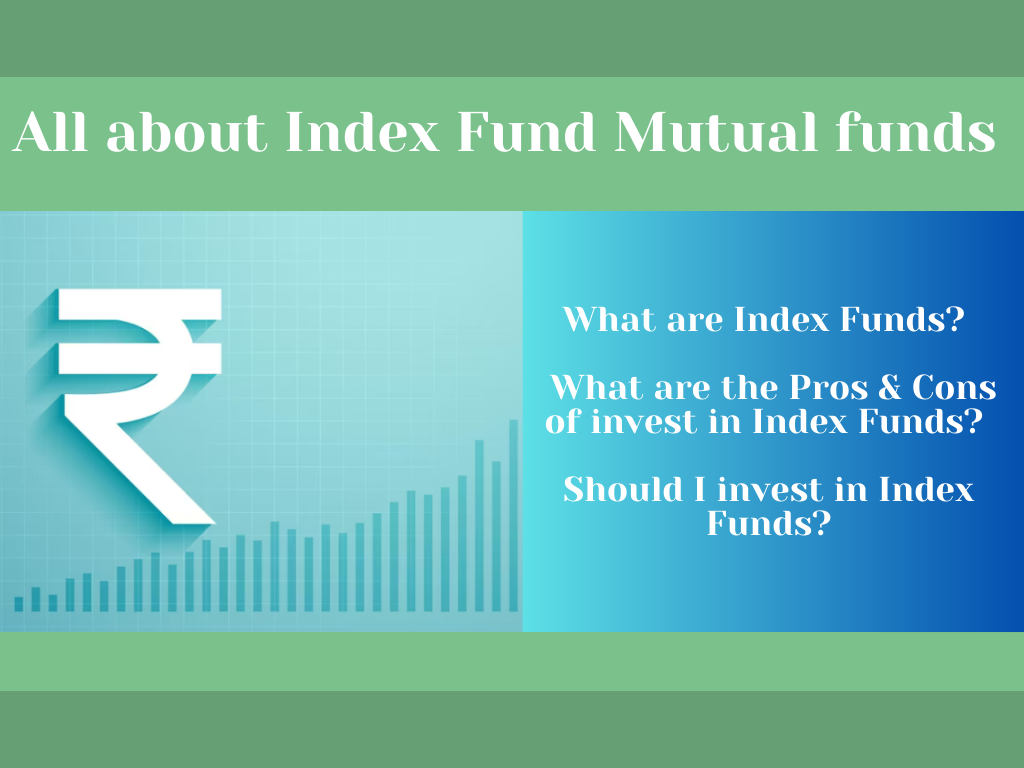What are Index Funds? What are the Pros & Cons of invest in Index Funds? Should I invest in Index Funds?
Index funds are a type of mutual fund or exchange-traded fund (ETF) that aim to replicate the performance of a specific market index, such as the S&P 500 or the FTSE 100. These funds hold a diversified portfolio of securities that mirror the composition and weightings of the chosen index. Here are some considerations regarding investing in index funds:
Pros of Investing in Index Funds:
Broad Market Exposure: Index funds provide investors with exposure to a wide range of securities within a particular market or sector. By investing in an index fund, you gain diversified exposure to a basket of stocks, bonds, or other assets, which helps spread risk and reduces reliance on the performance of individual securities.
Low Costs: Index funds are generally associated with lower expense ratios compared to actively managed funds. Since they aim to replicate the performance of an index rather than relying on active management, index funds have lower management fees and operating costs.
Consistent Performance: Over the long term, index funds have shown the ability to match or even outperform the average performance of actively managed funds. This is partly due to their low costs and the difficulty of consistently beating the market through active management.
Simplicity: Index funds are straightforward investment vehicles. They aim to replicate the performance of an index, so there is no need to analyze individual securities or make active investment decisions. This simplicity makes them suitable for investors seeking a passive, hands-off approach.
Tax Efficiency: Due to their low turnover and buy-and-hold strategy, index funds tend to be more tax-efficient compared to actively managed funds. They typically generate fewer taxable capital gains distributions, resulting in potential tax advantages for investors.
Cons of Investing in Index Funds:
Limited Upside Potential: While index funds provide broad market exposure, they are designed to match the performance of the underlying index, rather than outperform it. Therefore, they will not capture the full potential upside of individual securities that outperform the index.
No Active Management: Index funds do not involve active management decisions. They simply replicate the composition of the chosen index. This means they may not take advantage of potential market inefficiencies or adjust holdings based on changing market conditions.
Exposure to Underperforming Securities: Index funds hold all the securities in the index, including those that may underperform or have poor prospects. This means you will also be exposed to the weaker-performing components of the index, which could impact overall returns.
Lack of Flexibility: Investors in index funds have little control over the composition of the portfolio. The fund must hold the securities in the underlying index, and investors cannot cherry-pick individual securities or sectors to overweight or underweight.
Tracking Error: Index funds aim to replicate the performance of an index, but there can be slight differences in returns due to factors such as expenses, transaction costs, and sampling techniques. This tracking error can result in a deviation from the index's performance.
Whether or not you should invest in index funds depends on your individual financial goals, risk tolerance, and investment preferences. Index funds can be a suitable option for long-term investors seeking broad market exposure, low costs, and a passive investment approach. However, if you prefer active management or believe in the potential for superior stock selection, you may consider other investment options.
It's important to conduct thorough research, assess your investment objectives, and consider the specific features and costs of index funds before making a decision. Consulting with a financial advisor can also provide personalized guidance based on your circumstances.


